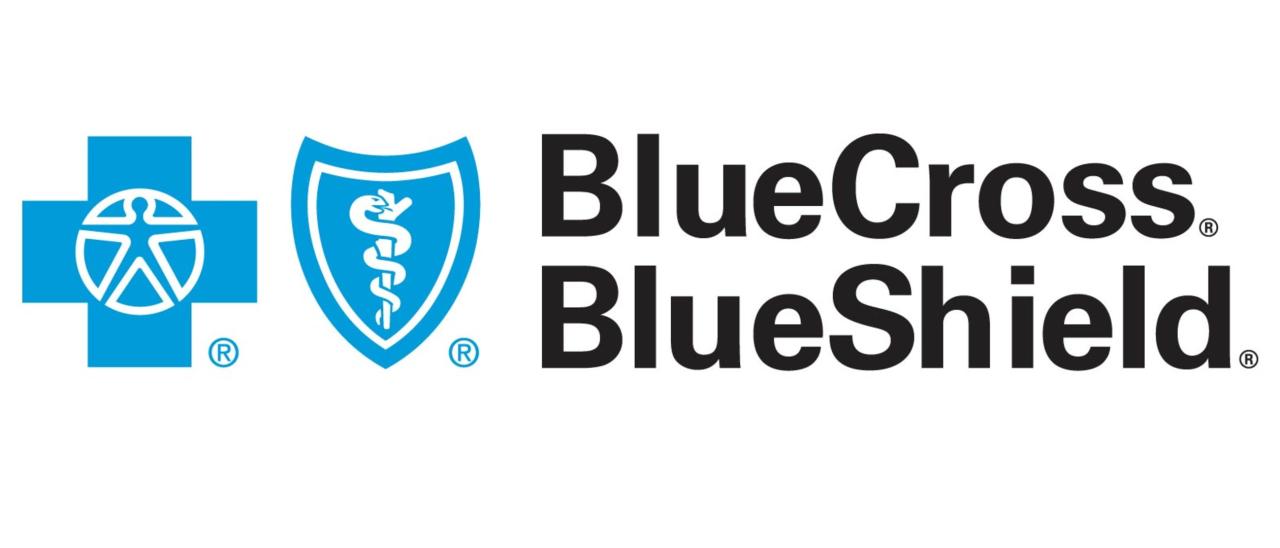Blue Cross Insurance stands as a prominent player in the American healthcare landscape, offering a wide array of plans and services designed to cater to diverse needs. With a rich history and unwavering commitment to providing quality care, Blue Cross Insurance has established itself as a trusted name in the industry.
This comprehensive guide delves into the intricacies of Blue Cross Insurance, exploring its origins, core values, product offerings, network coverage, pricing structure, customer support, industry standing, and commitment to innovation and social responsibility. Whether you’re seeking individual coverage, family plans, or employer-sponsored options, this guide provides valuable insights to navigate the world of Blue Cross Insurance.
Blue Cross Insurance Network and Coverage

Blue Cross Insurance offers a comprehensive network of healthcare providers, ensuring access to quality care across the nation. The network includes a wide range of doctors, hospitals, and other healthcare professionals, providing members with a diverse selection of options to meet their healthcare needs.
Finding In-Network Doctors and Hospitals
Blue Cross Insurance provides convenient tools and resources to help members locate in-network providers. These resources include:
- Online Provider Directory: This searchable database allows members to find doctors, hospitals, and other healthcare providers within their network by specialty, location, and other criteria. The directory provides detailed information about each provider, including their contact information, credentials, and accepted insurance plans.
- Mobile App: The Blue Cross Insurance mobile app offers a user-friendly interface to search for in-network providers, schedule appointments, and access other essential benefits information. The app provides real-time location-based search results, making it convenient to find providers near you.
- Customer Service: Blue Cross Insurance offers dedicated customer service representatives who can assist members with finding in-network providers. Members can contact customer service by phone or email to receive personalized assistance based on their specific needs.
Coverage Limitations and Out-of-Network Benefits
Blue Cross Insurance plans typically have coverage limitations and out-of-network benefits that vary based on the specific plan chosen.
- In-Network Coverage: Members generally receive the most comprehensive coverage when they use in-network providers. This means they pay lower copayments, deductibles, and coinsurance compared to out-of-network services.
- Out-of-Network Coverage: While Blue Cross Insurance may offer some coverage for out-of-network services, it is typically limited. Members may face higher out-of-pocket expenses, including higher copayments, deductibles, and coinsurance, and may need to file a claim for reimbursement.
- Out-of-Network Benefits: Some Blue Cross Insurance plans may offer out-of-network benefits, such as emergency care coverage, allowing members to access care outside of their network in urgent situations. However, it’s essential to review the specific plan details to understand the coverage limitations and associated costs.
Blue Cross Insurance Industry Standing and Reputation
Blue Cross Insurance is a major player in the health insurance industry, offering a wide range of plans and services to individuals and families across the United States. Its standing and reputation are shaped by various factors, including its financial stability, market share, and customer satisfaction.
Comparison to Other Major Health Insurance Providers
Blue Cross Insurance competes with other major health insurance providers, including UnitedHealthcare, Anthem, and Cigna. Each provider has its own strengths and weaknesses, and consumers should carefully compare plans and features before making a decision. Blue Cross Insurance is known for its strong network of providers, particularly in certain regions of the country. It also offers a variety of plan options, including HMOs, PPOs, and Medicare Advantage plans.
Financial Stability and Ratings
Blue Cross Insurance is generally considered to be financially stable. It holds strong financial ratings from independent agencies, such as AM Best and Moody’s. These ratings reflect the company’s ability to meet its financial obligations and provide coverage to its policyholders.
Public Perception and Reputation
The public perception of Blue Cross Insurance is generally positive. The company has a long history of providing health insurance, and it is often seen as a reliable and trustworthy provider. However, customer satisfaction ratings can vary depending on the specific plan and region. Some customers have expressed concerns about customer service and claim processing times.
Blue Cross Insurance for Specific Needs
Blue Cross Insurance understands that everyone’s healthcare needs are unique. Whether you’re managing a chronic condition, navigating a specific life stage, or simply seeking comprehensive coverage, Blue Cross Insurance offers a range of plans tailored to your individual requirements.
Coverage for Specific Health Conditions
Blue Cross Insurance offers plans designed to provide comprehensive coverage for individuals with specific health conditions, such as diabetes and cancer. These plans often include features like:
- Specialized medical care: Access to specialists, such as endocrinologists for diabetes or oncologists for cancer, who are experts in managing these conditions.
- Prescription drug coverage: Comprehensive coverage for essential medications, including insulin for diabetes and chemotherapy drugs for cancer.
- Disease management programs: Programs that provide education, support, and resources to help individuals manage their condition effectively.
- Preventive care: Coverage for regular screenings and tests that can help detect and manage health conditions early.
Blue Cross Insurance Plans for Different Age Groups
Blue Cross Insurance offers plans that cater to the unique healthcare needs of different age groups. Here’s a comparison table highlighting the key benefits of Blue Cross Insurance plans for seniors and young adults:
| Feature | Seniors | Young Adults |
|---|---|---|
| Prescription drug coverage | Comprehensive coverage for Medicare Part D prescription drugs | Affordable options for essential medications |
| Preventive care | Coverage for age-related screenings, such as mammograms and colonoscopies | Coverage for preventive services, such as vaccinations and wellness checkups |
| Hospitalization coverage | High-level coverage for extended hospital stays | Lower premiums with lower coverage for hospitalization |
| Mental health coverage | Comprehensive coverage for mental health services | Affordable options for mental health services |
Blue Cross Insurance Plans for Specific Lifestyles
Blue Cross Insurance offers plans designed to support individuals with specific lifestyles, such as active individuals and families. Here are some key features of these plans:
- Active individuals: Plans that provide coverage for sports-related injuries, physical therapy, and fitness programs.
- Families: Plans that offer comprehensive coverage for children, including well-child visits, vaccinations, and dental care.
Blue Cross Insurance and Healthcare Reform

The Affordable Care Act (ACA), also known as Obamacare, has significantly impacted the healthcare landscape in the United States, including the role of Blue Cross Insurance. This legislation has introduced numerous changes, from expanding health insurance coverage to regulating the insurance market.
Impact of Healthcare Reform on Blue Cross Insurance
The ACA has had a profound impact on Blue Cross Insurance, both in terms of opportunities and challenges. The law has led to increased enrollment in health insurance plans, particularly among previously uninsured individuals. This expansion has boosted the customer base of Blue Cross Insurance, leading to increased revenue and market share. However, the ACA has also introduced new regulations and requirements for insurance companies, such as the requirement to cover essential health benefits and the prohibition of pre-existing condition exclusions. These regulations have increased the cost of providing health insurance, impacting Blue Cross Insurance’s profitability.
Challenges and Opportunities in a Changing Healthcare Landscape, Blue cross insurance
The changing healthcare landscape presents both challenges and opportunities for Blue Cross Insurance. The ACA has spurred a shift towards value-based care, where healthcare providers are incentivized to improve patient outcomes and reduce costs. This shift requires Blue Cross Insurance to adapt its business model to focus on managing care quality and costs. The company is also facing increased competition from other insurance providers and new entrants, such as health technology companies.
Blue Cross Insurance’s Perspective on the Future of Healthcare
Blue Cross Insurance believes that the future of healthcare will be characterized by a continued focus on value-based care, technological innovation, and consumer empowerment. The company is actively investing in technologies such as telemedicine and digital health platforms to improve patient access and care coordination. Blue Cross Insurance is also working to promote health and wellness programs to reduce healthcare costs and improve overall population health.
Final Thoughts
In conclusion, Blue Cross Insurance emerges as a significant force in the healthcare sector, offering a comprehensive suite of plans and services tailored to meet individual and family needs. With a focus on accessibility, affordability, and customer satisfaction, Blue Cross Insurance strives to provide quality healthcare coverage while remaining at the forefront of industry advancements. As the healthcare landscape continues to evolve, Blue Cross Insurance remains committed to adapting and innovating to ensure its continued relevance and success in serving the needs of its policyholders.
Blue Cross insurance is a well-known provider of health coverage, offering a range of plans to meet individual needs. While their primary focus is on health insurance, it’s important to remember that long-term care costs can be substantial, and it’s wise to explore options like long term insurance cost to protect your financial well-being in the future.
Blue Cross may also offer supplemental policies that can help cover these expenses, so it’s worth inquiring about their specific offerings.
